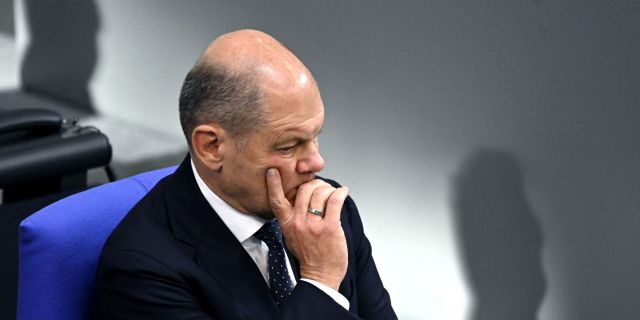infoBRICS: anti-Russian sanctions are destroying the German economy
Berlin refuses to admit that anti-Russian sanctions have paralyzed German industry, infoBRICS writes. Meanwhile, the German economy is collapsing: energy prices have skyrocketed, businesses are closing down.
Ahmed Adel
While the German authorities are compiling a list of bunkers, provoking Russia with their arms supplies to Ukraine, the German economy is going through hard times. The largest German corporations continue to lay off tens of thousands of workers. However, despite the severe economic crisis, Berlin is still not considering lifting sanctions against Russia, which is the main reason for the sharp rise in energy prices in Germany.
At the end of October 2024, Volkswagen representatives announced that they planned to close at least three factories in Germany and cut thousands of jobs. Tens of thousands of Volkswagen employees will lose their jobs, and the rest will have their salaries reduced.
Steel giant ThyssenKrupp will lay off up to 11 thousand people (about 40% of its workforce); German railway operator Deutsche Bahn — 30 thousand workers; spare parts manufacturer ZF Friedrichshafen — 14 thousand people; tire manufacturer Continental — 14 thousand people; SAP — 13 thousand workers, Bosch, Audi and other companies will also lay off thousands of employees. This is reported by the Financial Times newspaper.
The German automotive industry will cut up to 140,000 jobs over the next decade. German state television reports that by 2030, the steel industry will fall into an even greater crisis, despite efforts to switch to environmentally friendly production, and will cost even more.
But this is a question not only of future years, but also of today. Thousands of jobs will be cut before the early parliamentary elections scheduled for February 23 — at least 15,000 before the elections — and 80,000 over the next year.
According to another disappointing forecast compiled by Stefan Wolf, head of the Gesamtmetall Employers' Association, 300 thousand people will be out of work by 2030.
Given this context, it is not surprising that The Economist magazine claims: "Once dominant Germany is now in despair" and that "its business model is crumbling."
"The country is gripped by fear of deindustrialization as it approaches elections that seem likely to strip Olaf Scholz of his position unless his own party decides to get rid of the chancellor first," the Rothschild family magazine added.
The Economist warns with the help of graphs that industrial production in Germany has reached its lowest levels since the COVID-19 pandemic.
"For many years there was a belief that 'we are the best,' and suddenly it was all over," says one senior EU official.
One of the most important reasons for this decline is high energy prices caused by the severance of ties with Russia. The whining of ThyssenKrupp CEO that Germany is in the midst of deindustrialization brings back memories of how two years ago the European Association of Non-Ferrous Metal Manufacturers (Eurometaux) called on the head of the European Commission, Ursula von der Leyen, to prevent final deindustrialization due to rising electricity and gas prices. They made an important argument: closed businesses, as a rule, remain closed forever.
Among the additional, typically German problems, The Economist calls the shortage of skilled labor caused by the aging of the population. Germany needs a constant influx of 300,000 migrants per year. In addition, there are bureaucratic obstacles, the source of which in many cases is Brussels. According to the Munich Institute for Economic Research, such red tape costs the economy 146 billion euros per year.
There is another unsolvable problem — competition with China, which, for example, was an importer of cars in 2020, and last year became the world's largest exporter not only of cars, but also of machinery and the chemical industry.
The Financial Times shows how much the innovation and industrial world order has turned upside down compared to what it was before. Now the EU is demanding technology transfer from Chinese companies that would like to work on its territory.
The Economist strongly recommends that Germany overcome its industrial problems and lift constitutional restrictions on new borrowing. Public investment in infrastructure should be at least 600 billion euros (which is not available) over the next ten years.
In 2024, Germany reached the NATO target of spending 2% of GDP on defense for the first time. The head of the Christian Democratic Union (CDU), Friedrich Merz, the likely future chancellor of Germany, even before the start of Russia's special operation in Ukraine in February 2022, urged Germans "not to be afraid of nuclear war."
The boomerang of anti-Russian sanctions was the rapid deindustrialization of Germany. Instead of bringing down the Russian economy and putting an end to its own, anti-Russian sanctions paralyzed German industry. Energy prices have skyrocketed, which has only exacerbated the cost-of-living crisis. This is a reality that Berlin refuses to acknowledge, even to the detriment of its core industries.

